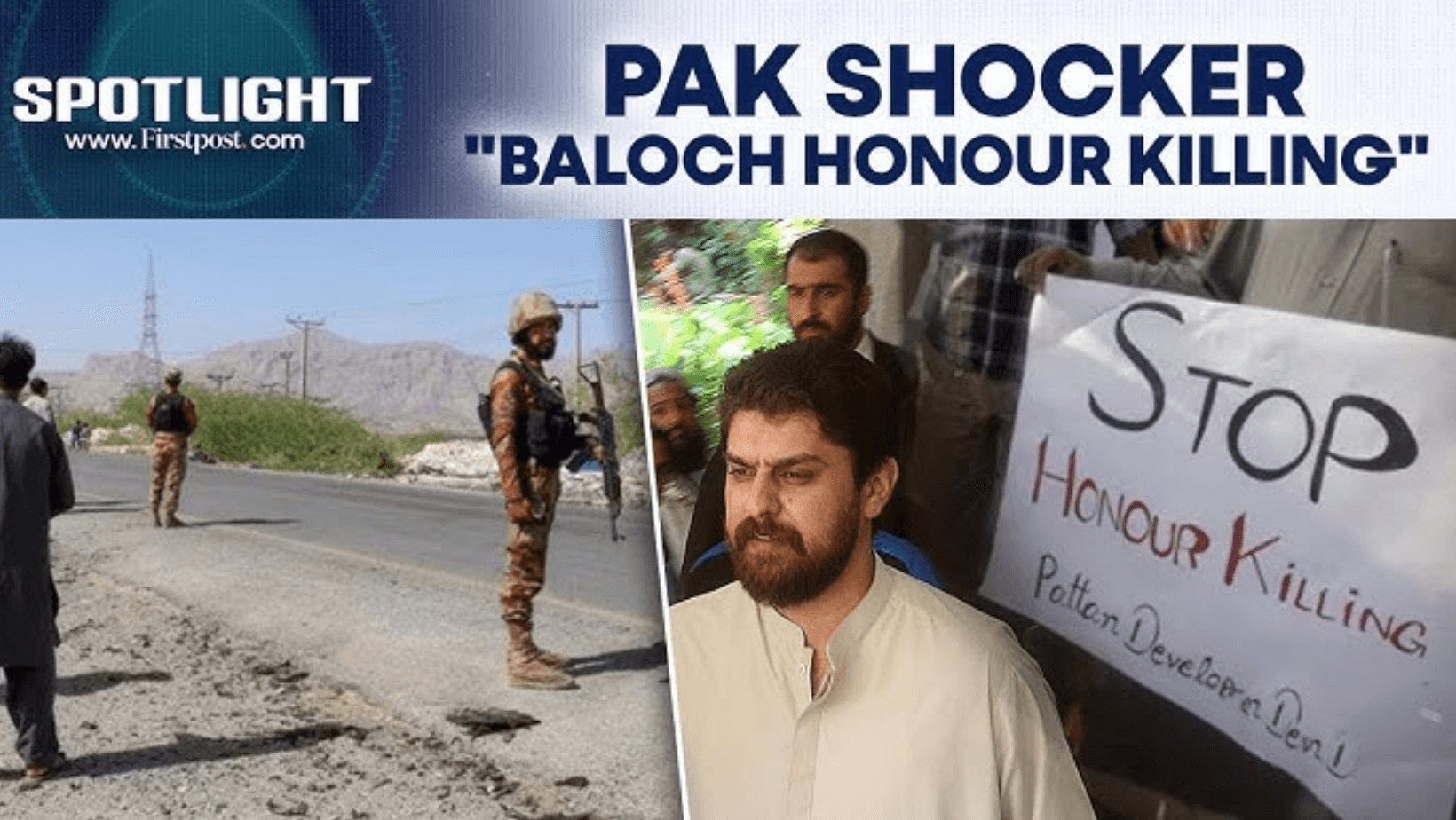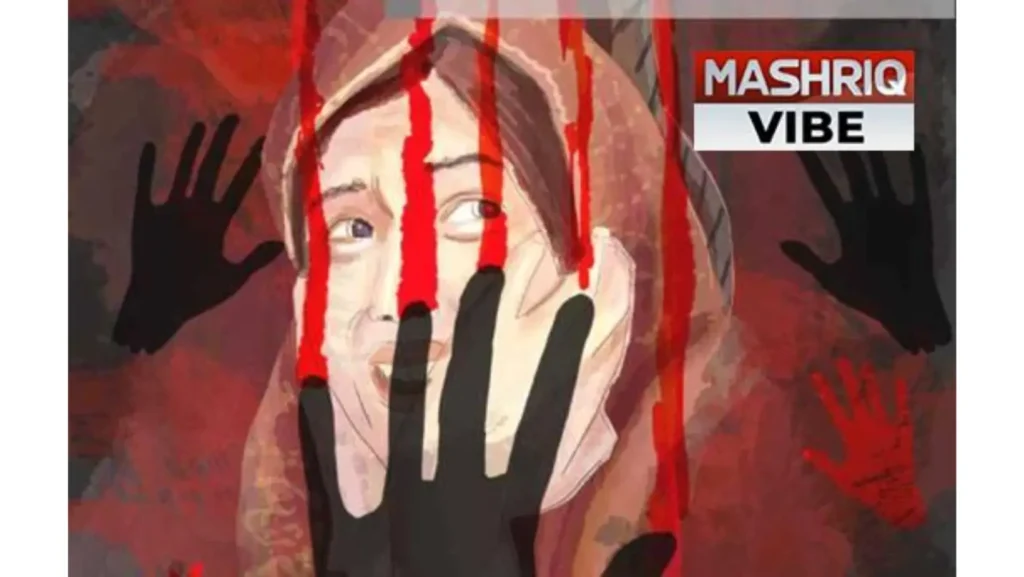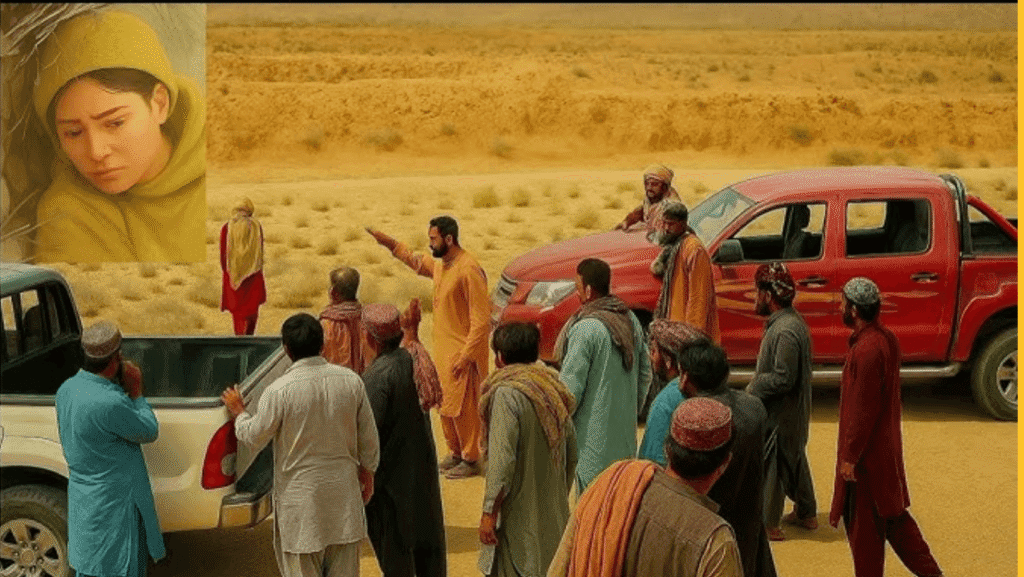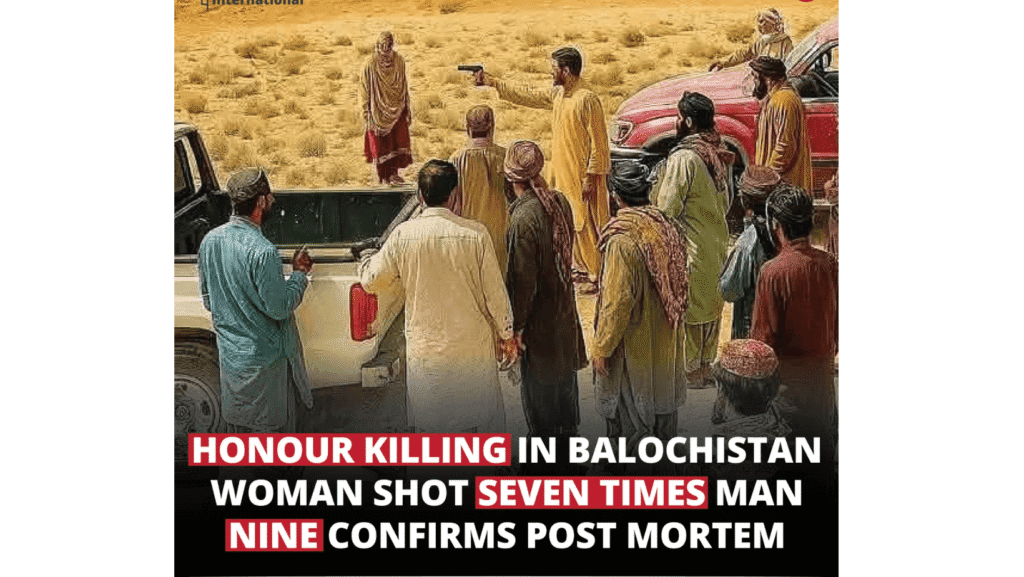
A truly devastating event took place in Balochistan this past week that sent shockwaves through the region. A young couple was murdered. They were killed in the name of “honour.” We must extinguish this evil and we must demand accountability.
The act of barbarity: Further details – March 11, 2023
The murders in Sohbatpur. Two young lives abruptly ended. The name of the young man was Shah Jahan; the name of the young woman was Gul Bibi. We understand that the young couple was in love and wanted to marry, but their families would not accept that, and this led to their deaths, according to the local police’s formal statement of events. Both were shot It was a violent crime that appears to have been the culmination of premeditated events.
The police acted swiftly to investigate the crime scene and make arrests, at least some of which are said to relate to relatives of the victims. The accused reportedly include relatives of the victims, which is ghastly. To us, this is a profound form of acceptance of this behavior, and it includes those who commit the foul act. So, families voluntarily take on the role of executioners in a deeply disturbed tradition. Society needs to break the chain.

What are ‘Honour Killings ‘? Establishing Origins.
‘Honour killings’ are not a new phenomenon, nor do they confine to a specific geographical region. Honour killings are an international problem, although they are occurrences that are vastly more experienced in some locales than others. Balochistan exemplifies the forms of issues in which ‘honour killings’ occur, as they enter social consciousness, defended as traditional and harmful constructs of family honour. Hence, these acts of violence are most often instigated by a woman or girl breaking a taboo by asserting her right to choose her partner. So, in cases of extreme victimization (often additional deaths or violence), the choice of partner alone may be the precursor act.
The origins of such practices run extremely deep and base upon rigidly patriarchal political systems in which men operate under assumptions of omnipotence and women operate under very few rights or autonomy. When women don’t follow the acceptable practice of either their family or their family/community, they are often harshly punished for this or other behaviour.
Often, these harsh punishments can equate to death. More alarmingly, the community often forgives or overlook them. Silence can then become a strong performative practice for the aggressors as it allows and protects their violence.
Read more: Shadow Over Pales-tine: Daily Struggle

Contributing factor:
I believe another contributory factor toward honour killings, too, may be a palpable lack of strong, preventative legislation. Too often, the justice system does not protect the victims.
Whether it’s the police choosing not to take action, or the courts applying leniency to honour killing cases, there does seem to be a culture of impunity that allows perpetrators to act with a great degree of surety that they will not face real punishment for their brutal acts. This makes reform of the law extremely important, and strict implementation is critical, too.
The Psychological Cost: Fear and Trauma
Living in an environment like this creates lasting psychological scars. Women live their lives in a constant state of fear. They fear their families. They fear disappointing expectations from people around them. Fear governs their lives. It silences their voices. It destroys their dreams. They learn to abandon wants and desires. They learn to fit into the box. So, with fear comes psychological injury. With psychological injury comes profound mental distress. Anxiety and depression become normal; they lose a sense of self.
And of course, there is trauma at the community level. Victims of gender-based violence fail to acknowledge fear, which is often present in their social context of violence. If you witness violence, you will carry its burden. Children, too, experience lasting trauma. Children internalize this violence. They see so much violence. They see loved ones being murdered. The violence becomes normalized. Justice cannot be demonstrable. Most importantly, it stunts their emotional growth. So, the cycle of violence continues. It spreads generationally. Stopping this cycle requires an immense amount of work.
Read more: 9/11: How a Day Reshaped the World
The Role of Jirgas: Parallel Justice Systems
Local Jirgas play an important role. They are traditional tribal councils. They use justice systems that are separate from formal law. Also, they sometimes sanction these crimes. So, they are well entrenched in old customs and pay attention to tribal honour. They bypass formal justice. Also, they represent a loss of state authority. So, they erode legal protection.
Activists make strong arguments against the role of Jirgas. They argue that they deny justice. They suggest that jirgas allow violence to continue. People seldom challenge their decisions. Jirga decisions rarely lead to accountability. Some argue it is important to dismantle these systems first. Reforms then must create a place for formal courts to receive the full benefit of the law. This grants equal protection to all citizens.
Calls for Justice: Growing Outrage
This recent murder sparks outrage and fairly. Human rights activists voiced their indignation. Women’s rights organizations decried it. Demanded immediate action. Social media exploded with anger. Many are calling for harsher penalties and an end to these practices. This outrage from the public space is important. It applies pressure. It will create a discussion.
Politicians responded, and some voiced regret. They promised an investigation. But promises do not equate to real action. Promises will not create the necessary legal protections for women. The law must be changed. Laws enforced. Victims must be protected.
Eliminating “honour killings” is incredibly challenging. It requires a holistic approach. Education is a powerful tool. People need to learn about human rights. They need to fully grasp equality. They need to challenge harmful cycles of tradition. Religious scholars can start preaching messages of peace and work against academic misinterpretation.

Encourage women empowerment. Women need economic independence. Also, women need access to education. Economic independence empowers choice. Education can empower agency. Victims need legal aid. Victims need adequate social support systems. Also, victims need safe spaces. Law enforcement must be thorough. Law enforcement, to be vigilant, must act swiftly. Additionally, law enforcement must prosecute those guilty of the crime. No individual should evade justice.
The lives of Shah Jahan and Gul Bibi are not to be forgotten. Their murder must be usable for (in terms of) something. It cannot just serve to increase your stridency in general. Hence, their deaths must ignite and spur action. And action must be real and enduring.



Leave a Reply